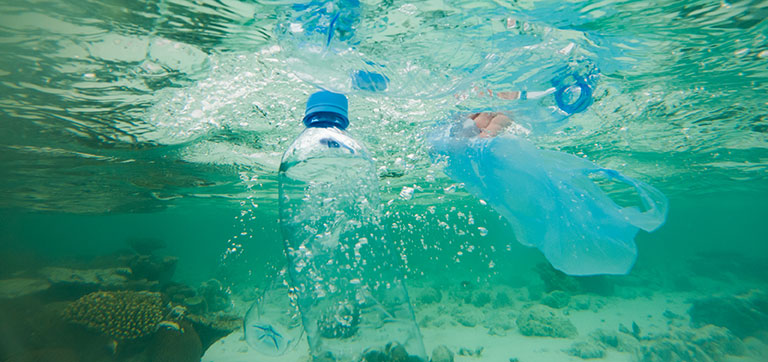
3 reasons why plastic is leaking from the land to the ocean in Indonesia
Photo by melis82 on EnvantoIndonesia, the world’s largest archipelago, is known for its stunning beaches and marine biodiversity. However,…
Are you sure you want to remove this item from cart?

Written by
on
3 minutes to read
Minutes to read: 4 minutes
In response to growing concerns about how to reduce plastic pollution, the international community, under the United Nations guidance, launched the ambitious negotiations toward a global Plastic Treaty. This significant initiative addresses the entire plastic value chain to reduce pollution effectively. Amidst this global effort, Plastic Bank is tackling the issue at its source, creating both environmental and social impact in the Philippines, Indonesia, Thailand, Egypt, and Brazil. Our Social Recycling movement is enlivening a wasteless world in alignment with the Treaty’s broader objectives and goals.
 Photo by Plastic Bank
Photo by Plastic Bank
The Plastic Treaty, formally known as the Plastics Treaty Mandate, represents a landmark global initiative supported by 175 nations to address the escalating plastic pollution crisis comprehensively. This Treaty commits to developing a universally binding agreement by 2024, encompassing the entire lifecycle of plastic — from production and design to waste management. Its holistic approach aims to reduce plastic pollution by addressing both its symptoms and root causes. Central to the Treaty’s mission is a fundamental shift in our relationship with plastic. This is a critical move as global plastic production exceeds 400 million tons per year, which threatens to grow without proactive measures. The Treaty aims to alter this trajectory, pushing the international community towards sustainable practices that significantly reduce plastic pollution, particularly its scourge of ocean and marine ecosystems.
The Intergovernmental Negotiating Committee (INC), led by the United Nations Environment Programme (UNEP), oversees the drafting and negotiation of this agreement. The INC plays a crucial role in coordinating discussions and collating inputs from member states, aiming to conclude negotiations by the end of 2024. This process demands an unprecedented level of international cooperation and commitment.
At its essence, the Treaty seeks to substantially reduce plastic pollution, focusing on challenges like ocean pollution, microplastics, and the environmental contamination caused by plastic. The negotiations at the UN Environment Assembly in Nairobi marked a significant milestone towards reaching these objectives and establishing global accountability.
In this effort, Plastic Bank emerged as a significant changemaker. Harmonizing with the Treaty’s comprehensive strategy, Plastic Bank’s innovative model motivates plastic waste collection before it contaminates our ocean. Through partnerships in regions with limited waste management infrastructure and high rates of plastic pollution and poverty, Plastic Bank establishes collection branches where community members can exchange plastic as currency for additional income and life-improving benefits, including health, work and life insurance, digital connectivity, grocery vouchers, school supplies, fintech services, and more. The collected material is processed into Social Plastic® feedstock for reuse in products and packaging by some of the world’s most progressive companies. This not only aids environmental cleanup but also offers social and economic impact.
Plastic Bank’s approach directly supports the Treaty’s goals, significantly reducing plastic entering our ocean and fostering a circular economy for plastic. Additionally, Plastic Bank’s initiatives help brands, consumers, and the plastic collection value chains become active participants in the fight against plastic pollution and poverty. Awareness-raising efforts with schools and faith communities support the effort.
The collaboration between global initiatives like the Plastic Treaty and innovative solutions from organizations like Plastic Bank offers a comprehensive and pragmatic approach to reduce plastic pollution. This alliance is pivotal in protecting our planet and redefining our interaction with plastics, setting a course toward a cleaner, more regenerative future.

Photo by melis82 on EnvantoIndonesia, the world’s largest archipelago, is known for its stunning beaches and marine biodiversity. However,…

What if you could measure your personal contribution to this global issue and take meaningful steps to reduce it?

Photo by sutirta budiman on UnsplashPlastic has been a priceless invention for human advancement. However, it also harms marine life and devastates our…

The season of giving is right around the corner – and so is the avalanche of consumer waste. It turns out the most…